Key Takeaways:
- Water filters can make water taste better and safer.
- Different types of water filters (activated carbon filters and reverse osmosis systems) have pros and cons.
- Maintenance and choosing the right water filter are key to performance and quality.
Water is life, but not all water is created equal. Many people are worried about tap water and turn to water filters for clean drinking water. But are water filters good for water? This post will explore the pros and cons of water filters, the types of water filters, and how to choose the right one for you.
The Importance of Drinking Water Quality
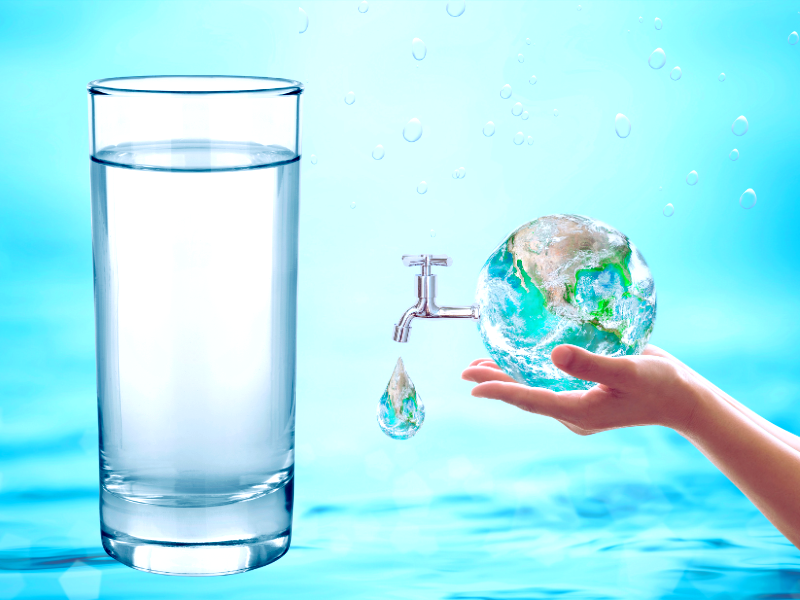
Water quality matters for our health. Contaminants in water can cause various health issues, from stomach problems to more serious conditions like cancer. Forever chemicals, a class of toxic man-made chemicals that don’t break down in the environment, are an example of contaminants that can affect water quality. Public utilities are supposed to provide safe water, but sometimes harmful chemicals and pollutants still get into our taps.
Water filters can remove these contaminants, an added layer of protection. By filtering water, you can reduce the risk of ingesting harmful substances and improve your drinking water's taste and smell.
Types of Water Filters
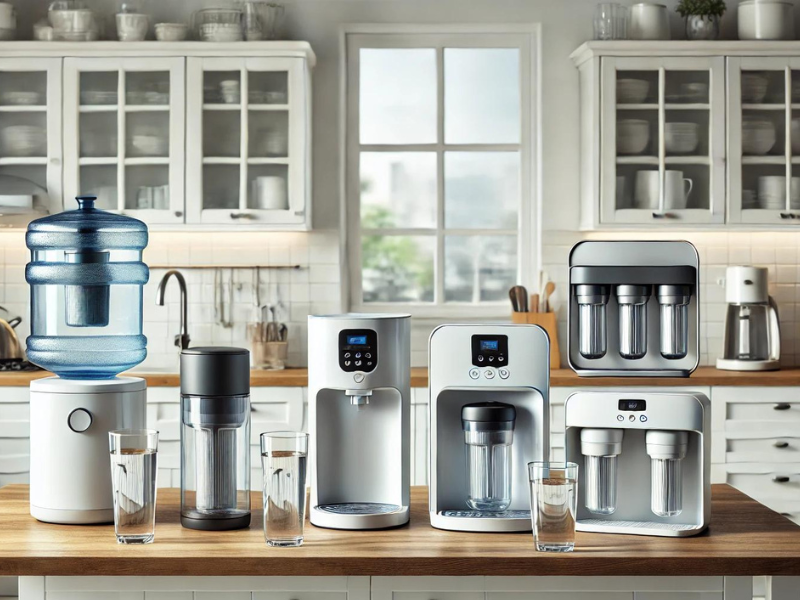
There are several types of water filters, each targeting specific contaminants. Knowing the options can help you choose the right filter for you. Not all filters are created equal, so check their quality through certification and unbiased product reviews.
Activated Carbon Filters
Activated carbon filters are the most common type of water filter. They work by adsorbing contaminants onto the surface of the carbon particles. These filters can remove chlorine, volatile organic compounds (VOCs), and bad odors from water. However, they may not be effective in removing heavy metals or other chemicals.
Reverse Osmosis Filters
Reverse osmosis filters use a semi-permeable membrane to remove contaminants from water. This can remove many impurities, including heavy metals, nitrates, and certain bacteria. However, reverse osmosis systems are more expensive and require professional installation and maintenance.
Faucet Mounted Filters
Faucet-mounted filters are a convenient way to filter tap water at the point of use. Easy to install and can remove chlorine, lead, and other contaminants. However, it may not remove all impurities, and filter cartridges need to be replaced regularly.
Refrigerator Filters
Refrigerator filters are built into many modern refrigerators and are designed to filter water for drinking and ice-making. They can remove chlorine, bad odors, and some contaminants. But like faucet-mounted filters, refrigerator filters need regular maintenance and filter cartridge replacement to work optimally.
Whole House Filters
Whole-house filters are installed at the main water supply line and can provide filtered water to every faucet in the house. These systems can remove many contaminants, including chlorine, sediment, and certain chemicals. However, they can be more expensive and require professional installation.
The Role of the Environmental Protection Agency (EPA)

The Environmental Protection Agency (EPA) sets standards for drinking water quality in the United States. These standards are designed to protect public health by limiting the levels of harmful contaminants in drinking water. While public utilities are responsible for meeting these standards, water filters can provide additional protection.
National Sanitation Foundation (NSF) Certification
When choosing a water filter, looking for NSF certification is essential. The National Sanitation Foundation (NSF) is a nonprofit organization that tests and certifies water filters to ensure they meet specific standards for contaminant removal. NSF certification can provide peace of mind that your chosen filter will effectively improve the quality of your drinking water.
Health Risks of Unfiltered Water
Unfiltered water can contain various contaminants that pose health risks. These contaminants can include bacteria, viruses, heavy metals, and man-made chemicals like polyfluoroalkyl substances (PFAS). Drinking unfiltered water can lead to gastrointestinal issues, reproductive problems, and even cancer.
Benefits of Filtered Water

Filtered water offers several benefits, including improved taste and odor, reduced health risks, and environmental benefits. By removing chlorine and other chemicals, filtered water can taste better and be more enjoyable to drink. Additionally, reducing exposure to harmful contaminants can lower the risk of health problems.
Environmental Impact of Bottled Water
Using water filters can also help reduce the environmental impact of bottled water. Plastic water bottles contribute to pollution and waste, and the production and transportation of bottled water consume significant resources. By filtering tap water, you can reduce your reliance on bottled water and help protect the environment.
Cost Considerations
While water filters can provide significant benefits, they also come with costs. The initial purchase price, installation, ongoing maintenance, and filter cartridge replacement can add up. However, these costs are often lower than the long-term expense of buying bottled water.
Maintenance and Filter Replacement
Regular maintenance and filter replacement are crucial for ensuring your water filter continues to perform effectively. Most filters have a recommended replacement schedule depending on the filter type and usage. Following these guidelines can help maintain water quality and extend the life of your filter.
Professional Installation
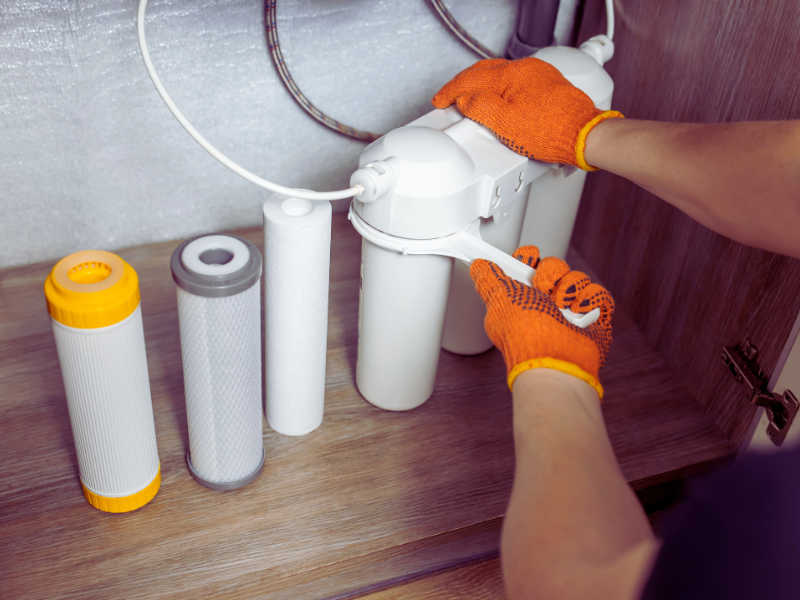
Some water filtration systems, like reverse osmosis and whole-house filters, may require professional installation. This can ensure the system is set up correctly and functioning properly. It's essential to follow the manufacturer's instructions and seek professional help.
Common Contaminants in Tap Water
Tap water can contain various contaminants, including chlorine, lead, nitrates, and VOCs. These contaminants can come from natural sources, industrial pollution, or aging infrastructure. Understanding the common contaminants in your water can help you choose the right filter to address these issues.
Testing Your Water
Testing your water can provide valuable information about contaminants and help you choose the right filter. Water testing kits are available for home use, or you can hire a professional to conduct a more comprehensive analysis. Regular testing can help ensure your water remains safe and clean.
The Role of UV Light in Water Filtration
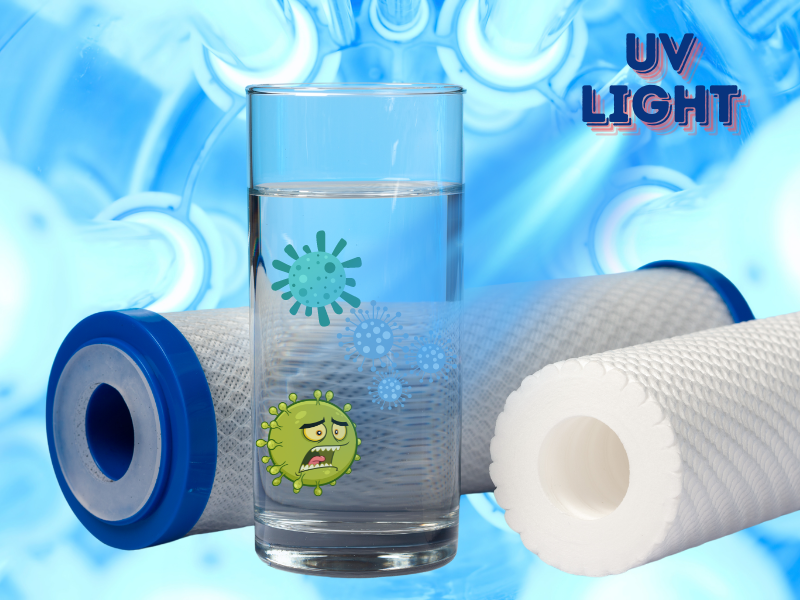
UV light is another method used in water filtration to kill bacteria and viruses. UV light systems can be used with other filters to protect against microbial contaminants. These systems are effective but may require professional installation and maintenance.
Ion Exchange Filters
Ion exchange filters are designed to remove specific contaminants, such as heavy metals and nitrates, by exchanging ions in the water with harmless ions. These filters can effectively target specific contaminants but may not address all water quality issues.
Distilled Water
Distilled water is another option to ensure clean drinking water. The distillation process involves boiling water and condensing the steam, leaving contaminants behind. While distilled water is free of most impurities, it can also lack essential minerals in natural water.
Cold Water Filtration
Cold water filtration systems are designed to filter water at lower temperatures, which can help preserve the water's taste and quality. These systems can be used with other filters to provide comprehensive water treatment.
Choosing the Right Water Filter for Clean
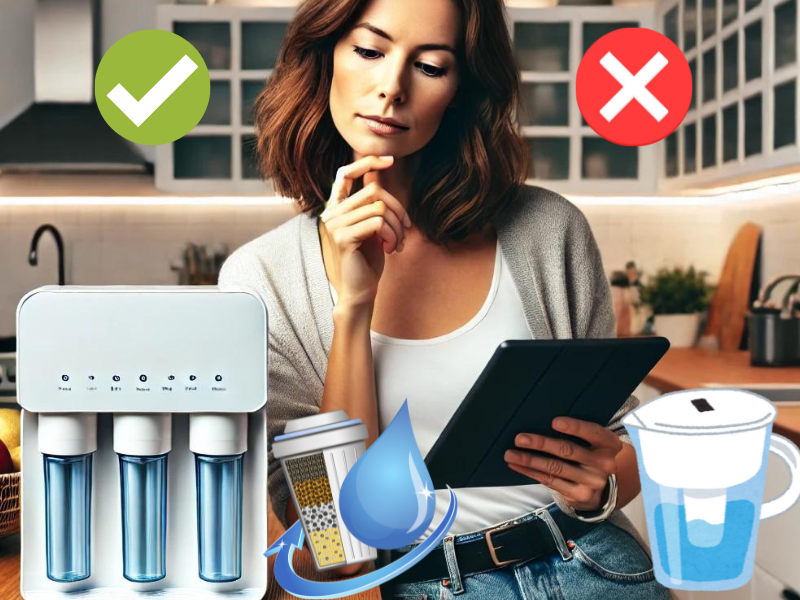
Different filters target specific contaminants to improve water quality and safety. Activated carbon filters are great for removing chlorine and VOCs, making your water taste and smell better. Reverse osmosis systems remove a wider range of impurities. Knowing what's in your water helps you pick the right filter. Filters can also address health problems by removing harmful substances like lead, which reduces developmental risks in children, and by eliminating bacteria and viruses to prevent stomach illnesses.
Summary
Water filters can improve drinking water quality by removing contaminants and improving taste and smell. Different filters, like activated carbon and reverse osmosis systems, have their benefits and drawbacks. Regular maintenance and choosing the right filter are key to optimal performance and water quality. Knowing what contaminants are in your water and choosing the right filter will get you clean and safe drinking water and reduce your reliance on bottled water.
FAQ
How often should I replace my water filter?
The frequency of filter replacement depends on the type of filter and usage. Most filters have a recommended replacement schedule, typically ranging from every few months to once a year. It's essential to follow the manufacturer's guidelines to ensure optimal performance.
Can water filters remove all contaminants?
No single water filter can remove all contaminants. Different filters are designed to target specific impurities. For comprehensive water treatment, you may need to use a combination of filters, such as activated carbon and reverse osmosis systems.
Is it necessary to test my water before choosing a filter?
Testing your water can provide valuable information about the contaminants present and help you choose the right filter. While it's not always necessary, it can ensure you select a filter that addresses your water quality concerns.








